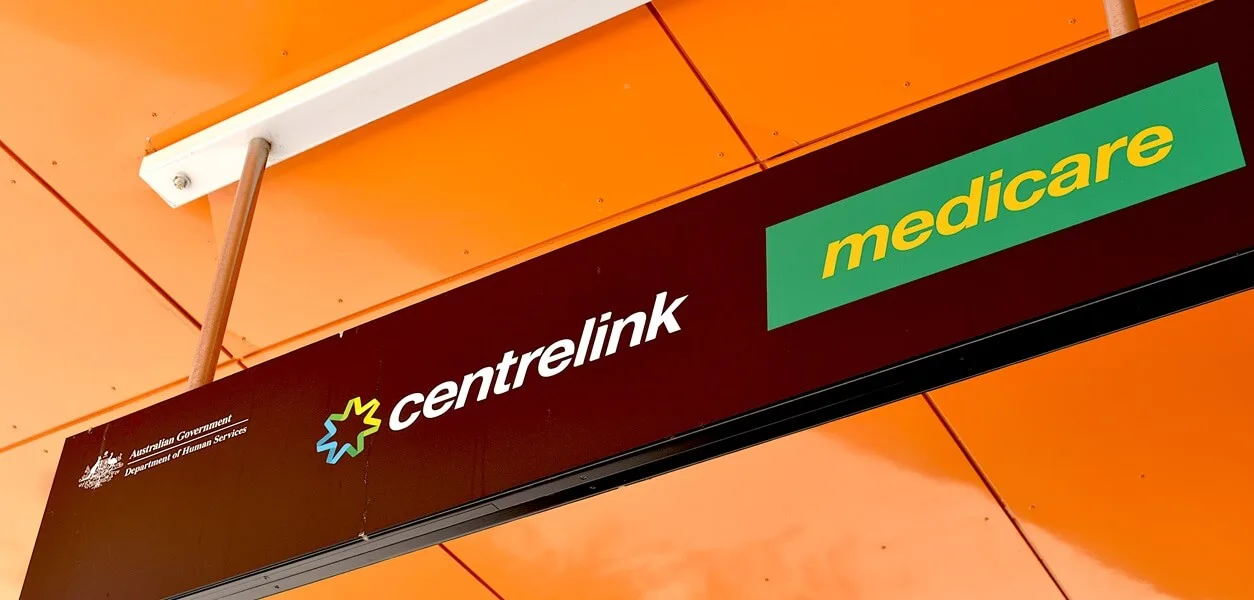
What Centrelink knows or doesn’t
There’s a lot of confusion about what Centrelink knows, what it updates automatically, and what you need to report yourself. Many people assume Centrelink has direct access to their tax records, bank accounts, and superannuation balances—but the reality is quite different.
The following guide breaks down what Centrelink does and doesn’t track and when you need to step in to update your details.
Common assumptions vs. reality
Centrelink can access tax records from the ATO.
No. Centrelink does not receive copies of your tax returns or Notices of Assessment. However, it can match data with the ATO to identify discrepancies.
Centrelink monitors bank accounts in real-time.
No. It only investigates bank accounts in cases of suspected fraud or random audits.
Centrelink knows all financial details about Self-Managed Super Funds (SMSFs), private companies, and trusts.
No. This information is not automatically shared by the ATO. You must report it yourself.
Centrelink delays applications to discourage claims.
No. Processing can be slow due to verification checks, but applications are not deliberately delayed.
Centrelink always knows your super balance.
Partially true. Super funds report balances to Centrelink twice a year (March and September), but this does not apply to SMSFs, which must be updated manually.
What Centrelink updates automatically
Some financial details are updated without you needing to report them:
• Superannuation (except SMSFs) – Most major super funds send updates to Centrelink twice a year.
• Account-Based Pensions – Pension drawdowns and balances from most providers are reported directly to Centrelink.
• Shares and investments – Share prices are updated regularly, but you must report if you buy or sell shares.
Reminder:
If your financial situation changes between updates—such as withdrawing a large sum from super—Centrelink won’t know unless you tell them.
When you need to update Centrelink
You must report changes within 14 days to avoid incorrect payments. Key updates you must provide include:
• Changes in income or assets – Selling property, withdrawing super, receiving an inheritance, or a significant change in savings or investments.
• Spending down assets – If you use super or savings for medical expenses, travel, or home renovations, this could reduce your assessable assets and potentially increase your pension.
• Self-managed Super Funds (SMSFs) and private companies – These are not automatically tracked, so you must update Centrelink whenever balances change.
• Relationship changes – Marriage, separation, or a partner reaching Age Pension age can affect your entitlement.
• Going overseas – Your pension may change depending upon how long you plan to be away. You will need to inform Centrelink if you plan to leave Australia for more than 6 weeks.
If you have scheduled reporting (explained further down), you must also report any changes when you submit your regular report.
What happens if you don’t update Centrelink?
Failing to update Centrelink can lead to financial consequences, including:
• Missed payments – If your assets decrease but you don’t report this, you might be entitled to a higher pension and miss out.
• Overpayments and debts – If your income or assets increase and you don’t update Centrelink, you could receive more than you’re entitled to and may need to repay the difference.
• Late reporting issues – Changes only apply from the date Centrelink processes them, not from when they actually happened. If you report a change too late, you might not receive the correct pension amount for that period.
A notable exception: super in accumulation
If one partner is receiving the Age Pension but the other is below Age Pension age, the younger partner’s super is not counted as an asset.
• You don’t need to update Centrelink on super balance changes while this account remains in accumulation.
• Once the younger partner reaches Age Pension age, their super becomes assessable, and updates must be reported.
This can be an important planning consideration for couples, particularly where one partner can access their super before it is counted in the means test.
Scheduled reporting
If you or your partner earn income from work, Centrelink will usually set up scheduled reporting every 14 days.
• You’ll be given a reporting period and must declare the gross amount earned during that time.
• Reports are due by 5 pm on your reporting date—if you miss it, your payment could be delayed or cancelled.
• You can’t report early, unless your reporting date falls on a public holiday.
• Each time you report, Centrelink will tell you your next reporting date.
Updating Centrelink during a claim
If you’re applying for the Age Pension, it’s worth updating Centrelink if your circumstances change while your claim is being processed.
• Changes in your financial situation can affect eligibility and payment amounts. If your super balance decreases due to spending, you may qualify for a higher entitlement.
• Centrelink’s initial assessment is based upon the information available at the time. If your assets change before your claim is approved, updating them ensures a more accurate outcome.
Since claims can take weeks or even months to process, keeping your details current can prevent delays or incorrect payments.
How to update Centrelink
There are several ways to update your details:
• Online via myGov – Sign in and go to ‘My details’ to update information.
• Express Plus Centrelink app – Update income, assets, and personal details using your phone.
• Centrelink phone self-service – Call and follow the prompts.
• In person or over the phone – If you don’t have access to online services, you can call the Centrelink Older Australians line (132 300) or visit a service centre.
You can also authorise someone to deal with Centrelink on your behalf if needed.
Final thoughts
Centrelink doesn’t track everything in real time, so keeping your details up to date is essential. Regular updates can mean higher payments, fewer surprises, and a smoother experience. If in doubt, report early—it’s better to provide too much information than too little.
If you need help to understand what you do and don’t need to tell Centrelink consider booking a Retirement Essentials Age Pension Consultation. You can also get assistance to reduce the impact of some events (such as an inheritance) on your Age Pension situation with a Maximising Entitlements Consultation.
What about you?
Have you ever been surprised by a Centrelink payment adjustment? What happened?
What’s the biggest challenge you’ve faced when updating Centrelink?






Hubby and I have a SMSF. It has dropped in Value by $60K recently and we will also be drawing down an extra $20k for a holiday. As our age pension is reduced due to assets can we report drop in value now rather than waiting until our financials are done at end of year.
Hi Sue, technically yes you can report the reduced asset balances now however Centrelink will likely request your updated financial statements as evidence so it is possible they will not process the change until you have the financials to back it up.
You mention the need to report when a younger spouse becomes pension age.(I thought it would be automatic ..so thanks for the heads up)
My husband receives a part pension and once this happens it will stop. So should this be done in the fortnight prior to that happening or on/after the actual day?
Also our health care cards will need altering to Seniors Health Care Cards….when should we apply for those….again on/after the actual day or before in the lead up to?
Hi Marina, thank you for reaching out. Centrelink’s rule is that they need to be notified within 14 days after an event has occurred. If you were to notify them earlier there is the chance that the change may not come to pass (for example if were to pass away or separate, God forbid). As such it is best to notify Centrelink either on the day or as soon after as is possible. You can also lodge your claim for the CSHC at the same time given you know the outcome will be that the Age Pension is cancelled.
Can I submit to Centrelink the new valuation of a motor vehicle as the value is half since the pension application was done and would I have to supply any evidence ??
Hi Giuseppe, thank you for reaching out! Yes you can and should update Centrelink on your values and generally no you will not have to provide evidence for cars. If you try to declare a 5 year old Ferrari as only being worth $20K then they might raise an eyebrow and ask for evidence though.
Can you report as a couple or does person have to report individually
If my spouse has a small ballance is it worth running that down first to remove fees and just have the one account
Hi Francis, the person(s) who are working are the ones who need to report their income. If you are both working then you both need to report each of your incomes.
Thanks, you guys do a great job keep us updated weekly?
Hubby is on a full pension, plus supper. I am 65 and not working since 2001 due to health issues. I have no incoming income.
I just sold some shares for 10k. These are my shares in my name only, nothing to do with hubby. Do I need to declare the sale?
Hi Susan, although you may be under the Age Pension age and not receiving a payment yourself, your income and asset values are factored in to your husband’s Age Pension payment. As such it is best to notify Centrelink of any changes in your situation as well as his.
I have recently applied for the age pension. My wife is still working as a sole trader. I had to provide her most recent ATO Notice of Assessment in my application. Her work is very seasonal and varies greatly from month to month. Does she now have to create a Centrelink account and start reporting her income at every month? Or do I report her income through my account? If so, how often? Thanks!
Hi David, this is a great question but we would need to speak with you via our consultation service to clarify the process for you. If you’d like to learn more please CLICK HERE to make a booking.
My wife and I have to make fortnightly reports on any earned income from part time or casual employment. Given this, can we assume that the level of our pension payments are determined by the income test?
Hi Andrew, thanks for reaching out. Any and all employees receiving Centrelink payments need to report their income, it does not definitively mean that the income test is the one being applied. Centrelink ask for the fortnightly declaration so they can do the calculation as to whether it is the income or asset value that should be used to determine your payment.
I updated my assets in December 2024 while still waiting for my pension application to be finalized. I had sold shares and used the proceeds for dental treatment and uploaded evidence of my new bank balance and the share sale. my pension was approved in april but it was then I realized they had updated my share sale but not my bank balance so it looked as though I had way more assets than what I actually had. I lodged a complaint on mygov and the next day I received call from Centrelink. At first they said they would adjust my payments from my next payment only but I pushed for a back payment to December and they accepted. So I have a nice little extra pay coming. Timely and pleasant experience dealing with them over the phone, well done Centrelink.
When I moved to an apartment unit, I had to buy few furnitures. When updating Centrelink I think I mistakenly added each furniture item in the Asset list. I found out I cannot delete them and put them in the overall asset value.
Do you have a suggestion how to overcome this issue?
Hi Charles, This is a common issue—your profile may be locked for asset updates, or your entries may be pending Centrelink review. Contact Centrelink and ask to consolidate these items under your general Household and Personal Effects. This category should reflect a realistic “fire sale” value—what the contents might fetch if sold all at once, not the insured value. A common estimate is $5,000 for a single person or $10,000 for a couple. You can request this correction via phone, in person at a Centrelink office, or through your myGov inbox.
I recently bought Vanguard ETF. When updating Centrelink, it thinks that it is no in the ASX list. How should I update it?
Hi Chris, Vanguard ETFs are listed on the ASX, but Centrelink sometimes doesn’t recognise them by name due to the number of variants (e.g. international, US, diversified). You’ll need to enter the exact ASX code (like VAS), the number of units, the acquisition date, and your ownership percentage. If the online system won’t accept it or doesn’t allow you to save the entry, contact Centrelink directly—they may need to code it a specific way or update it over the phone. Be ready to provide supporting documents that show the ETF name, units held, and current market value.